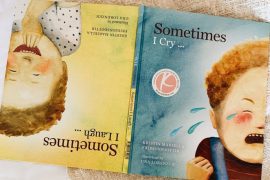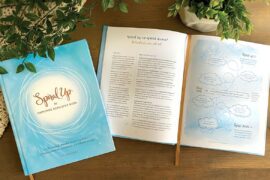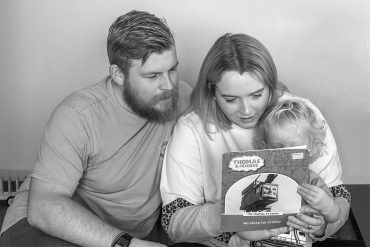By Bonnie Harris
There is a fine line between sympathy and empathy. Learning the difference can make huge changes in your relationship with your child.
- Sympathy directs attention to how you feel.
- Empathy is about listening. It tells your child you are paying attention to how she feels.
- Sympathy is about me. Empathy is about you.
- Empathy has nothing to do with how you feel; it’s about understanding how the other feels given their circumstance.
Empathy and sympathy as metaphor:
Imagine a huge hole in the ground with Man A stuck at the bottom unable to escape. Man B walks nearby and hears Man A calling for help. Man B sees Man A at the bottom of the hole and jumps in to help. Now both are stuck at the bottom of the hole. Man C walks by and hears both A and C calling for help. Man C tells them he will be back soon. Later, Man C arrives with a ladder.
Man B acted out of sympathy for Man A and jumped in thinking he was helping Man A. Now both were in the problem. Man A now had Man B to deal with as well as his original problem. Sympathy often becomes more about the sympathizer. Man C empathized understanding the predicament they were in and what was needed. His compassion was helpful. Empathy is more about the person being empathized with.
My mother was a professional worrier. Whenever I expressed having a problem with anything, she sympathized, “Oh my poor dear. That’s so awful. Do you really have to do that?” Her sympathy was not helpful. As a matter of fact, I stopped sharing my problems with her because then I had her feelings and worry to deal with as well as my own problem.
When we sympathize with our children, we can cross a boundary and become enmeshed with our child in their problem. We then become overly protective or involved (the helicopter parent) and try hard to fix or take away our child’s problem. For example, my child is having a problem with a classmate calling my child names. When I sympathize, it becomes more about my upset, resentment, or anger than my child’s difficulty with the name-calling. I then feel justified in calling the teacher or offending child’s parent, getting angry and demanding restitution.
If I have empathy for my child’s problem, I stay detached to a certain extent. But I am detached from making it my problem, not from my child. I may be upset about the situation but more important is connecting with my child and expressing my understanding of and compassion for his emotions. Empathy lets the child know that this important adult understands him and can name his feelings, so he feels normal and accepted. “It’s got to be so hard when you hear that name. I can imagine that you feel pretty demoralized.” It’s about my child, not me. He can agree with my assumption or correct it. Conversation typically follows empathy.











